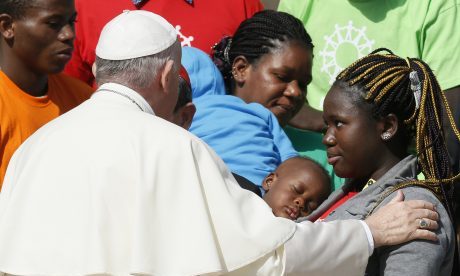From the very first moments of his pontificate, Jorge Bergoglio signalled a departure in style from that of his immediate predecessors.
His taking of the name Francis, his eschewing the full papal vestments, and his appeal to the masses gathered in Saint Peter’s Square below to pray for him, before imparting his own blessing, all indicated a more personal, pastoral style.
Francis, most commentators agree, was elected on his perceived ability to address the need for reform of a Roman Curia increasingly beset by paralysis, inefficiency and scandal.
It soon became apparent, however, that he saw this reform as a subset of a wider and more comprehensive renewal of the Church as a whole, one not so much theological in nature as, for want of a better word, popular.
Was this reform to be merely superficial in nature?
It is almost in parenthesis that we note Francis’ pontificate coinciding with the rise of numbers of forced migrants to historically unprecedented post-war levels both in Europe and around the globe.
This presented Francis with a unique opportunity to develop and demonstrate his vision for a renewed Church, repositioned in and for a globalised world.
Notwithstanding the importance of other ethical issues, the complexity and nature of forced migration and its attendant ethical debates provides a unique challenges to Church.
It has been notoriously divisive, in seeming contradiction to the consistency, since the papacy of Pius XII, of Church teaching on the subject.
The difficulty is in the application, with responses necessarily involving ordinary people of all faiths and none, and institutions such as NGOs, governments and various multi-lateral bodies of the United Nations.
Within the Church itself the issue points to arguably impoverished concepts of sin and God’s mercy and justice. Continue reading
Sources
- Eureka Street article by Australian Jesuit David Holdcroft, who is currently conducting a strategic review of post-secondary education in forced migrant settings for the global Jesuit Refugee Service (JRS).
- Image: America
